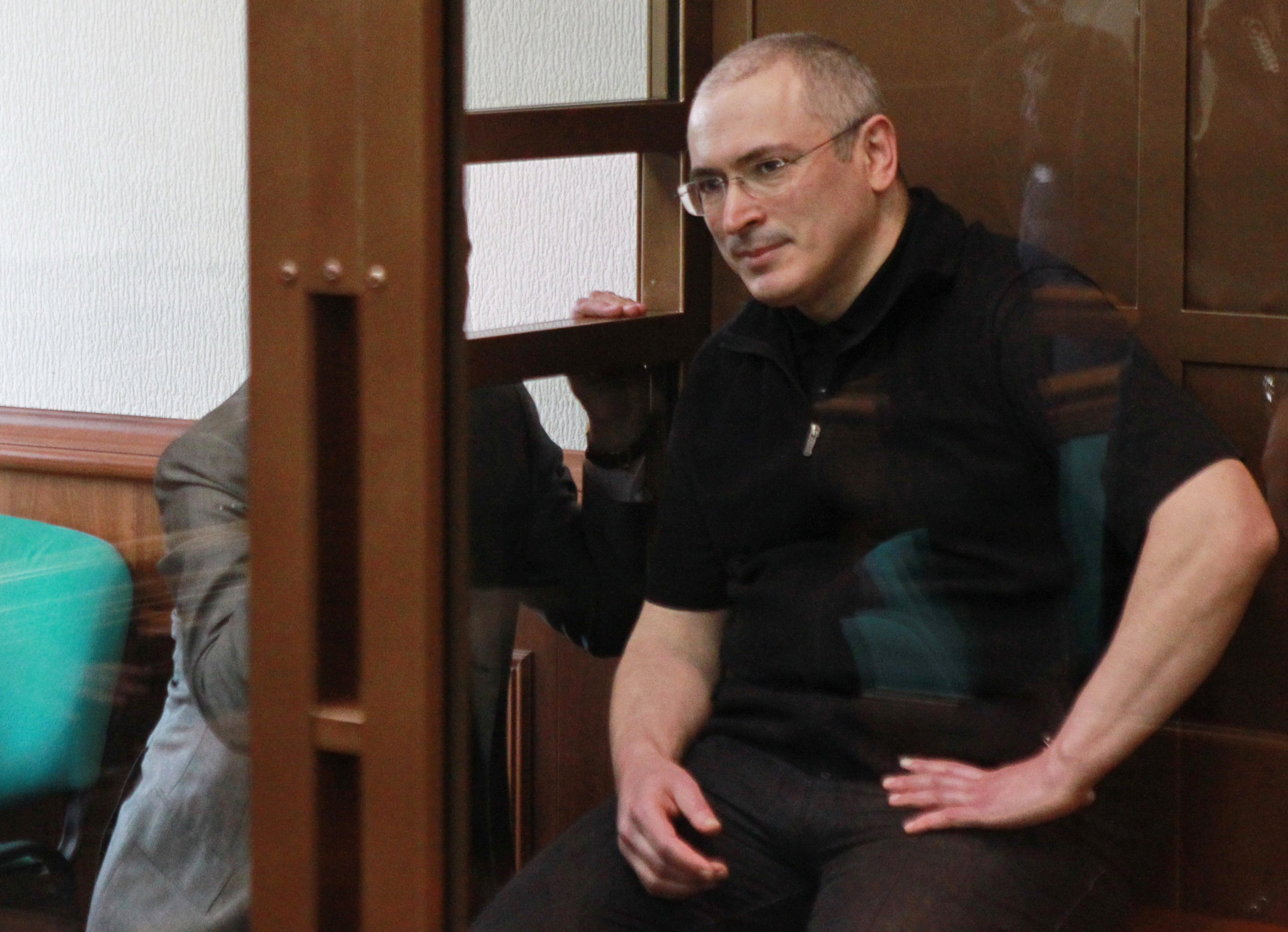MOSCOW, July 25 (RAPSI) - The European Court of Human Rights (ECHR) held Thursday that the charges filed against jailed former tycoons Mikhail Khodorkovsky and Platon Lebedev were brought in accordance with the law, but that their rights had been violated in connection with the court proceedings and their placement in remote Siberian penal colonies.
Khodorkovsky and Lebedev both formerly served as top managers of Yukos, which was once one of Russia's largest oil companies.
The YUKOS case has been one of the most high-profile in Russia in recent years. In the early 2000s, Russian authorities accused YUKOS executives of embezzlement and tax evasion. In 2005, the court sentenced Khodorkovsky and Lebedev to eight years in prison for fraud and tax evasion.
Both Khodorkovsky and Lebedev turned to the ECHR complaining that the criminal proceedings brought against them were unfair.
Both men specifically raised their rights under the European Convention of Human Rights (Convention) to a fair trial within a reasonable time. On this point the ECHR disagreed, finding that there had been no violation of the relevant article of the convention in connection with the judge's impartiality, or with the time and facilities granted for the defense team's preparation.
A violation of the Convention's article guaranteeing fair trial rights was found however with regard to breaches of lawyer-client confidentiality and the trial court's unfair taking and examination of evidence.
With respect to their transfer to penal colonies in remote corners of Russia, both raised their right to respect for private and family life. On this point the ECHR agreed, finding that their right to such had been violated on account of their transfer to distant penal colonies thousands of kilometers from Moscow.
They both further argue that they were subjected to a novel and unpredictable interpretation of the tax law, raising the Convention's prohibition on punishment without law. The ECHR disagreed on this point, explaining that the application of the tax law to convict the men had been reasonable and had corresponded to common sense.
Further alleging that their prosecution was politically motivated, both men raised the Convention's limitation on use of restriction on rights. On this point, the ECHR disagreed, finding that there had been no violation of the Convention's relevant article in connection with the complaint that the hearing had been politically motivated.
Khodorkovsky further raised his rights to the protection of property based on having been ordered to reimburse Yukos' tax arrears to the State, and to individual petition, based on allegations that his lawyers had been subjected to harassment. On the first point, the ECHR agreed. On the latter point, the ECHR agreed as well.
In connection with the conditions of his detention and with having been placed in a metal cage during court hearings, Lebedev raised the Convention's prohibition of inhuman and degrading treatment. He further raised his right to liberty and security in connection with the length of his detention. The ECHR held that there has not been a violation of the prohibition of inhuman and degrading treatment in connection with Lebedev's detention conditions on remand, but that there had been a violation in connection with his placement in a metal cage.
The Court drew mixed conclusions about his claims of his right to liberty and security having been violated, holding that had been violations in connection with the length of his detention on remand and with delays in the examination of a detention order of December 14, 2004. However, the Court found no violations of the Convention's protection of the right to liberty and security in connection with the fairness and speediness of the other detention proceedings Lebedev had complained of.
The Court ordered Russia to pay EUR 10,000 in non-pecuniary damages to Khodorkovsky within three months of the judgment becoming final. Lebedev’s claims for pecuniary damages were rejected.
Comments were released via Khodorkovsky's advocacy website on behalf of the former tycoons’ lawyers shortly after the hearing. Khodorkovsky’s lawyer Karinna Moskalenko focused on the violations found by the ECHR, explaining: “We welcome that the European Court judgment found numerous violations of Mikhail Borisovich’s rights during his trial.”
Lebedev’s lawyer Elena Liptser likewise welcomed the judgment: “The Court’s finding is of huge significance: Khodorkovsky and Lebedev did not receive a fair trial. The Court was damning in its criticism of the way the trial and the appeal were conducted. The Court also said that it was unlawful for the authorities to send each of them to serve their sentences in the far flung reaches of Siberia.”
Unrelated to the present ECHR case, but relevant to Khodorkovsky's present legal situation, in 2010, a Moscow district court sentenced Khodorkovsky and Lebedev to 14 years in prison for oil theft and money laundering. They were expected to be released in 2017, taking into account the time that they had already served for their convictions from their first trial in 2005. However, on May 24, 2011, the Moscow City Court reduced their sentences by one year. They now may be released in 2016.
Khodorkovsky is currently serving out his prison sentence in a Karelia Region penal colony. Lebedev is presently serving out his own in the Yamalo-Nenets region of Russia's western Siberia.



